What are EU Missions?
EU Missions are a new way to bring concrete solutions to some of our greatest challenges. They have ambitious goals and will deliver concrete results by 2030.
The 5 EU Missions are:
- Adaptation to Climate Change: support at least 150 European regions and communities to become climate resilient by 2030
- Cancer: working with Europe's Beating Cancer Plan to improve the lives of more than 3 million people by 2030 through prevention, cure and solutions to live longer and better
- Restore our Ocean and Waters by 2030
- 100 Climate-Neutral and Smart Cities by 2030
- A Soil Deal for Europe: 100 living labs and lighthouses to lead the transition towards healthy soils by 2030
They put research and innovation into a new role, combined with new forms of governance and collaboration, as well as by engaging citizens.
EU Missions are a novelty of the Horizon Europe research and innovation programme for the years 2021-2027.
They support Commission priorities, such as the European Green Deal, Europe fit for the Digital Age, Beating Cancer and the New European Bauhaus. For instance, Mission Climate is a concrete element of the new Climate Adaptation Strategy, Mission Cancer of the Europe’s Beating Cancer Plan and the Mission Soil is a flagship initiative of the Long-term Vision for the EU’s Rural Areas.
EU Missions are a coordinated effort by the Commission to pool the necessary resources in terms of policies and regulations, as well as other activities. They also aim to mobilise and activate public and private actors, such as EU Member States, regional and local authorities, research institutes, farmers and land managers, entrepreneurs and investors to create real and lasting impact. Missions engage with citizens to boost societal uptake of new solutions and approaches.
EU Missions support Europe’s transformation into a greener, healthier, more inclusive and resilient continent. They aim to bring tangible benefits to people in Europe and engage Europeans in their design, implementation and monitoring.
Each mission operates as a portfolio of actions – such as research projects, policy measures or even legislative initiatives - to achieve a measurable goal that could not be achieved through individual actions.
See background analysis that contributed to this approach.
Making Missions happen
Commission approach and mission management
In 2019, five Mission Boards were formed to help specify, design and start the implementation of Missions for Horizon Europe. Their mandate ended at the end of 2021.
In February 2021, mission managers were appointed in the European Commission to lead EU Missions and be their public face.
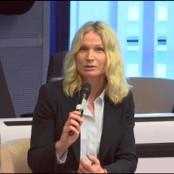 Elina Bardram
Elina BardramDirector at Directorate General for Climate Action (DG CLIMA)
Mission manager for the Adaptation to Climate Change mission
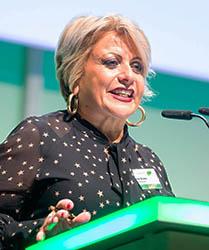 Joanna Drake
Joanna DrakeDeputy Director-General at Directorate-General for Research and Innovation (DG RTD)
Mission manager for the Cancer mission
 Kestutis Sadauskas
Kestutis SadauskasDeputy Director-General at Directorate-General for Maritime Affairs Fisheries (DG MARE)
Mission manager for the Restore our Ocean and Waters mission
 Patrick Child
Patrick ChildDeputy Director-General at Directorate-General for Environment (DG ENV)
Mission manager for the Climate-Neutral and Smart Cities mission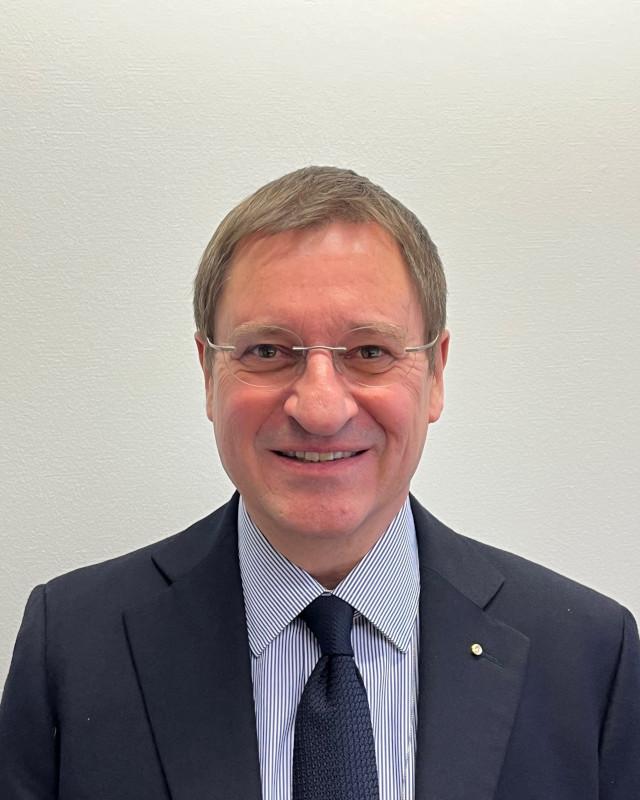 Michael Niejahr
Michael NiejahrDirector / Acting Deputy Director-General at Directorate-General for Agriculture and Rural Development (DG AGRI)
Mission manager for the Soil Deal for Europe mission
The mission managers are working closely with the deputy mission managers, most of whom are based in Directorate General for Research and Innovation: Philippe Tulkens (Missions Climate), Lorena Boix Alonso (Mission Cancer) from Directorate General for Health and Food Safety, John Bell (Mission Ocean), Rosalinde Van der Vlies (Mission Cities) and Peter Wehrheim (Mission Soil).
In September 2022, new Mission Boards were announced. Each Mission Board consists of 15 experts, including a Chair. They promote the EU Missions by raising citizens’ awareness, advise on the actions of the Missions’ implementation plans and build on the work of the Mission Boards from the first phase. Their formation was the result of an open call for expressions of interest and their mandate will run from 2022 to 2025.
Each mission area was also supported by the Missions' design phase by an assembly that gathered a larger number of high-level experts. The assemblies provided an additional pool of ideas, knowledge and expertise that will be actively called upon to contribute to the success of the missions.
The Commission engaged with citizens in a continuous process for the design, monitoring and assessment of the Missions.
More about mission board chairs, lists of board and assembly members
5 missions were proposed by Mission Boards
At the European Research & Innovation Days (22-24 September 2020), each Mission Board presented their proposals to the European Commission for possible EU Missions.
The Mission Boards discussed with stakeholders as well as citizens, listening to their expectations and needs through a series of events across EU countries.
Mission Boards proposals for new EU Missions
- Conquering Cancer: Mission Possible
- A Climate Resilient Europe - Prepare Europe for climate disruptions and accelerate the transformation to a climate resilient and just Europe by 2030
- Mission Starfish 2030: Restore our Ocean and Waters
- 100 Climate-Neutral Cities by 2030 - by and for the citizens
- Caring for Soil is Caring for Life
Taking stock two years on: the 2023 assessment of EU Missions and the review of mission areas
The Horizon Europe Regulation requires the Commission to carry out an assessment of the first Missions (Article 8.5 of the Horizon Europe Regulation) and to review the Mission areas by the end of 2023. The legal base sets out that any activity of Missions beyond 2023 is conditional on the outcome of the assessment process.
To match the strategic nature of the review and assessment exercise, a Commission Communication was adopted with key political messages regarding the work developed so far and the future of Missions. The Communication is accompanied by a Staff Working Document that presents the technical evidence of the EU Missions assessment and the review of mission areas.
Evidence on the performance of EU Missions and the relevance of the five mission areas was gathered through a study which helped assess each individual EU Mission against the following dimensions: the Mission's goal and objectives; the selection process of each EU Mission; the Mission's governance structures and functioning; the progress towards the fulfilment of the Mission's objectives; the Mission' s budget and funding arrangements.
Assessment reports of EU Missions and report on the review of mission areas
How to get involved
Citizens’ engagement is a key element for the EU Missions. We need broad participation from the public to make sure Missions are relevant and make a real difference.
For example, Missions will involve people in online discussions and polls on social media such as the Conference on the Future of Europe, and citizen events and specialised conferences to discuss the focus of Missions.
Looking ahead, stakeholders should get involved in Missions via actions presented in the Horizon Europe work programme.
Discover all EU Missions and citizen engagement activities.
Contact
RTD-HORIZON-EUROPE-MISSIONS ec [dot] europa [dot] eu (RTD-HORIZON-EUROPE-MISSIONS[at]ec[dot]europa[dot]eu)
ec [dot] europa [dot] eu (RTD-HORIZON-EUROPE-MISSIONS[at]ec[dot]europa[dot]eu)
Documents

- Communication
- 19 July 2023
Communication from the Commission to the European Parliament, the Council, the European Economic and Social Committee and the Committee of the Regions.

- Staff working document
- 19 July 2023
Accompanying the document Communication from the Commission to the European Parliament, the Council, the European Economic and Social Committee and the Committee of the Regions:
EU Missions two years on: assessment of progress and way forward.
Latest
- News article
Twelve municipalities from across Ukraine are starting a transformative journey to climate-neutral rebuilding with support from the SUN4Ukraine initiative of the EU Climate-Neutral and Smart Cities Mission.
- 3 min read
- News article
20 projects, spanning from fishery communities to ports and islands, start receiving technical assistance from top-notch experts in their field. This technical assistance will help communities across the different sea-basins to scale up and further develop their project with tailor made support.
- 1 min read
- News article
The assistance will include feasibility studies, business model development, creating funding strategies, conducting regulatory analyses, and...
- 1 min read
Events
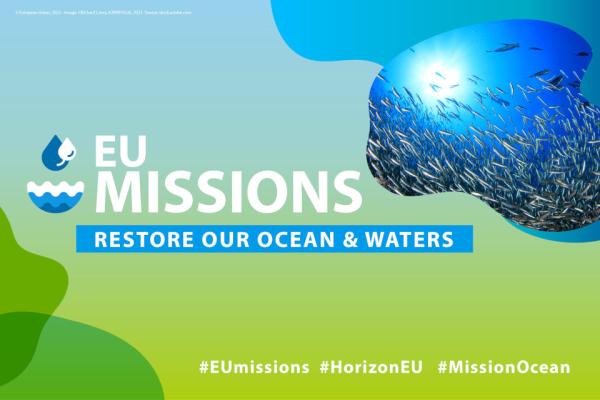
- Conferences and summits
- Tuesday 15 October 2024, 09:00 - 15:30 (EEST)
- Burgas, Bulgaria
- Live streaming available

- Conferences and summits
- Thursday 11 July 2024, 14:00 - 17:30 (CEST)
- Bologna, Italy
- Live streaming available
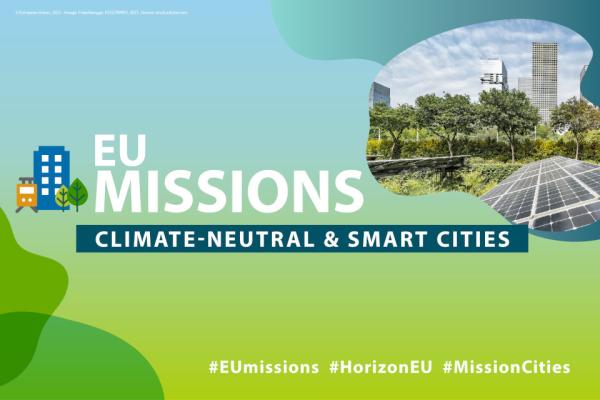
- Conferences and summits
- Tuesday 25 June 2024, 09:00 - Wednesday 26 June 2024, 17:00 (CEST)
- Valencia, Spain

